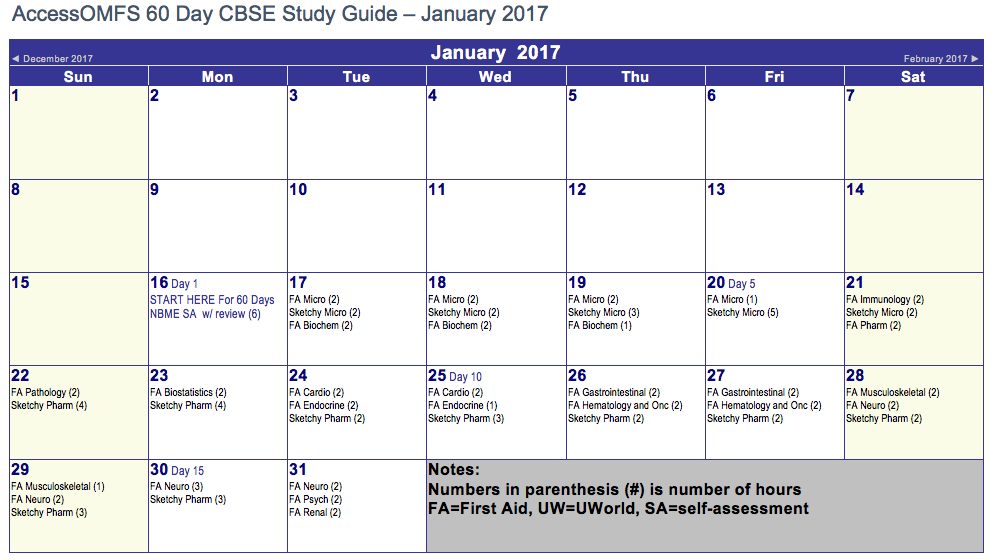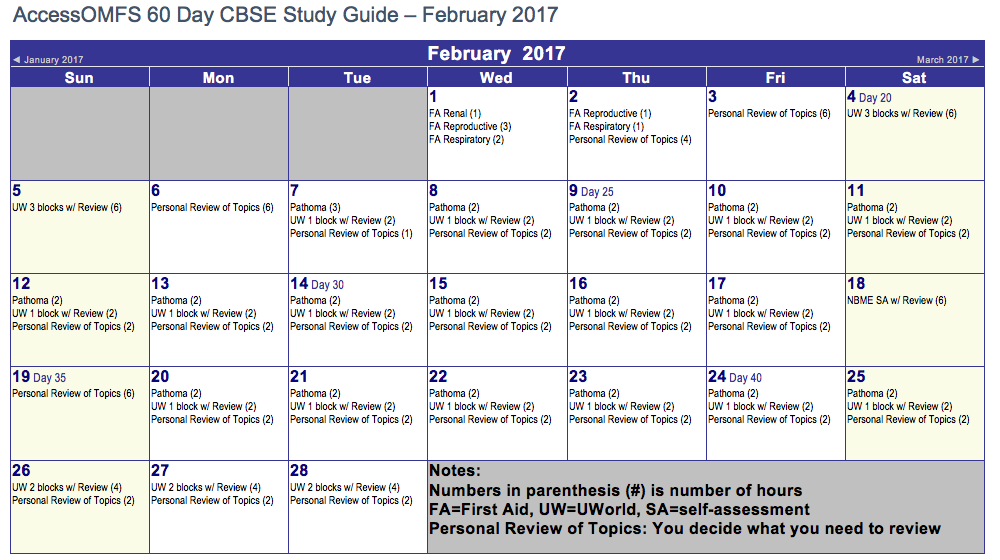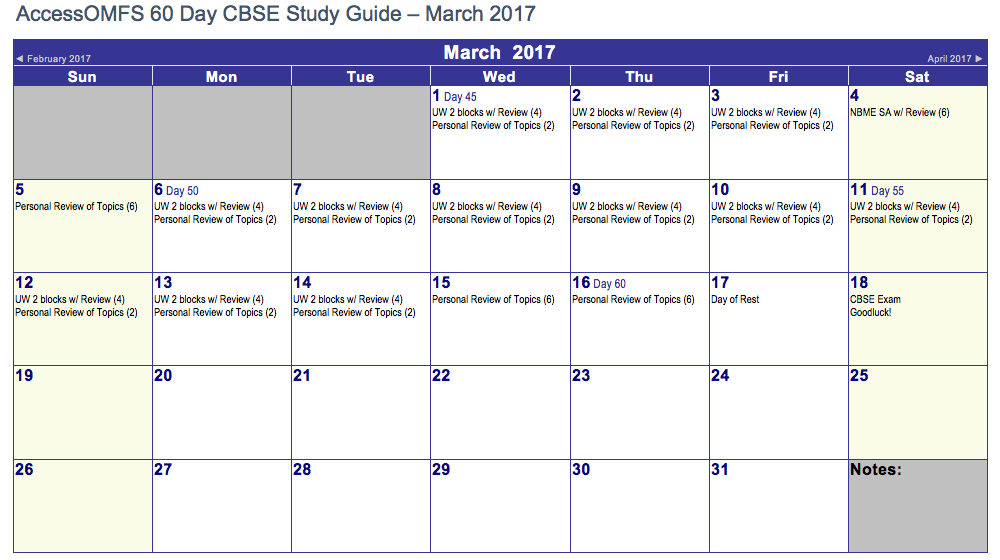The CBSE is a tough test. Preparing for it is even tougher. Planning your strategy isn’t any easier. There are so many study materials and people giving varying advice about how to approach and study for this exam that it can be overwhelming. Determining how long you should study is also stressful. The important thing is to customize your plan so that you can meet your goals. There is not a magic bullet for getting a competitive score, which is a 70+ these days, and it is impossible to make a perfect guide that is suitable for everyone. So, the goal of the Two-month CBSE Study Guide (One-month CBSE Study Guide coming soon) is to help make you aware of what is achievable in this time frame and to provide a template for you to create your study schedule. For a bigger overview of the CBSE and how to prepare, read the AccessOMFS CBSE Guide.
A key maxim that cannot be said enough is, “study smarter, not harder.” Can you get a 70 or better after studying for two months? Absolutely. After one month? Definitely. It all depends on you, your basic science background, and how hard you are willing to work. Make sure your plan has benchmarks in place to track your progress. NBME self-assessments are a great way to do this. Averaging a few of your last test blocks on UWorld is another method. Studying for this test isn’t a function of the time invested, it’s more about learning the material. Coincidentally, LEARNING the sheer volume of testable material requires time. You don’t have to use every study material out there as long as you use a few the right way. Below, the study schedule is set up to give the average time it would take to review the material. The goal is to make sure you are comfortable with the material in this amount of time. If you require more time, take more time. If you are a fast learner, then it is possible to cut back on some of the hours. Additionally, this should not be the first time you encounter most of this content. Although most dental schools give a superficial overview of these subjects, you should have encountered most of them before.
CBSE Study Tools
How much time do I have available to study for the CBSE in two months? Based on a normal work schedule, some simple math brings us to 360 hours of available study time (24 hours/day – 8 hours to sleep/eat – 9 hours of 8-5 pm normal work schedule= 6 hours a day of available study time on average x 60 days). If it doesn’t sound like enough time, the total amount of time required complete First Aid (slowly), UWorld (with review), all the Sketchy Medical videos, all Pathoma, and two NBME self-assessments with the review is only a theoretical 252 hours of content. Estimated timetables of study content are below.
CBSE Study Tools Timetable
|
USMLE First Aid 2017 @680 pages |
||
|
Fast (1 min/page) |
11 hours 20 mins |
|
|
Slow (5min/page) |
56 hours 40 mins |
|
|
Sketchy Medical |
||
|
Microbiology |
13 hours 8 mins |
|
|
Pharmacology |
26 hours 29 mins |
|
|
UWorld: 1-hour blocks @ 44 questions and 2400 total Qs |
||
|
No review (1 hour/block) |
~55 hours |
|
|
Review (2 hours/block)* |
~110 hours |
|
|
Pathoma |
Viewing time |
35 hours |
|
NBME Self-Assessment |
||
|
No review |
4 hours |
|
|
With review (expanded feedback) |
6 hours |
|
|
Goljian Review Series |
35 lectures @ ~50 mins each |
~30 hours |
*Review AFTER taking random, timed, 44 question block in test format
By following this course, it leaves you over 100 hours to review the content you learned. You could even go through all of Goljian and still have plenty of time left over. Granted, 6 hours studying a day on average for some is achievable, even conservative, while for others it will be overwhelming. If you break your studying into parts such as three hours in the morning and three hours in the evening, or two hours in the morning and four in the evening then it is manageable. You can even double down on the weekends and reduce your weekday study load. Let me reiterate, studying for this test is not about the time invested or making it through a book or a video. It is about learning the material. Studying for an entire year will do you no good if you are not learning. If you are meeting your benchmarks, then keep chugging along. If not, what are you doing wrong? What sections are you underperforming in? What content is helping you learn and what is wasting your time? The message here is to not study blindly. Track your progress and adapt as necessary.
I have created a sample study plan, which is posted below. This plan works off of the average of 6 hours of available study time per day over 60 days. It is designed to review the basic sciences and organ systems in the first month then move into test preparation and Pathoma in the second month. In other words, build a foundation then test the foundation you have built. You will notice that “Personal Review of Topics” is incorporated quite frequently. The intention of this time is to mold the schedule to your personal needs. Maybe you have done poorly on cardiac questions or just want time to review some of the Pathoma lectures. The bigger point is that two months gives you room to work on what you want while still being able to cover all of the basics. There are no guarantees you get the score you want by following this schedule, but it can serve as a template for you or help you understand the time commitment required to learn the material. The files for the calendars are below so you can edit them as necessary. Hope this guide is helpful, and remember to make it your own!



